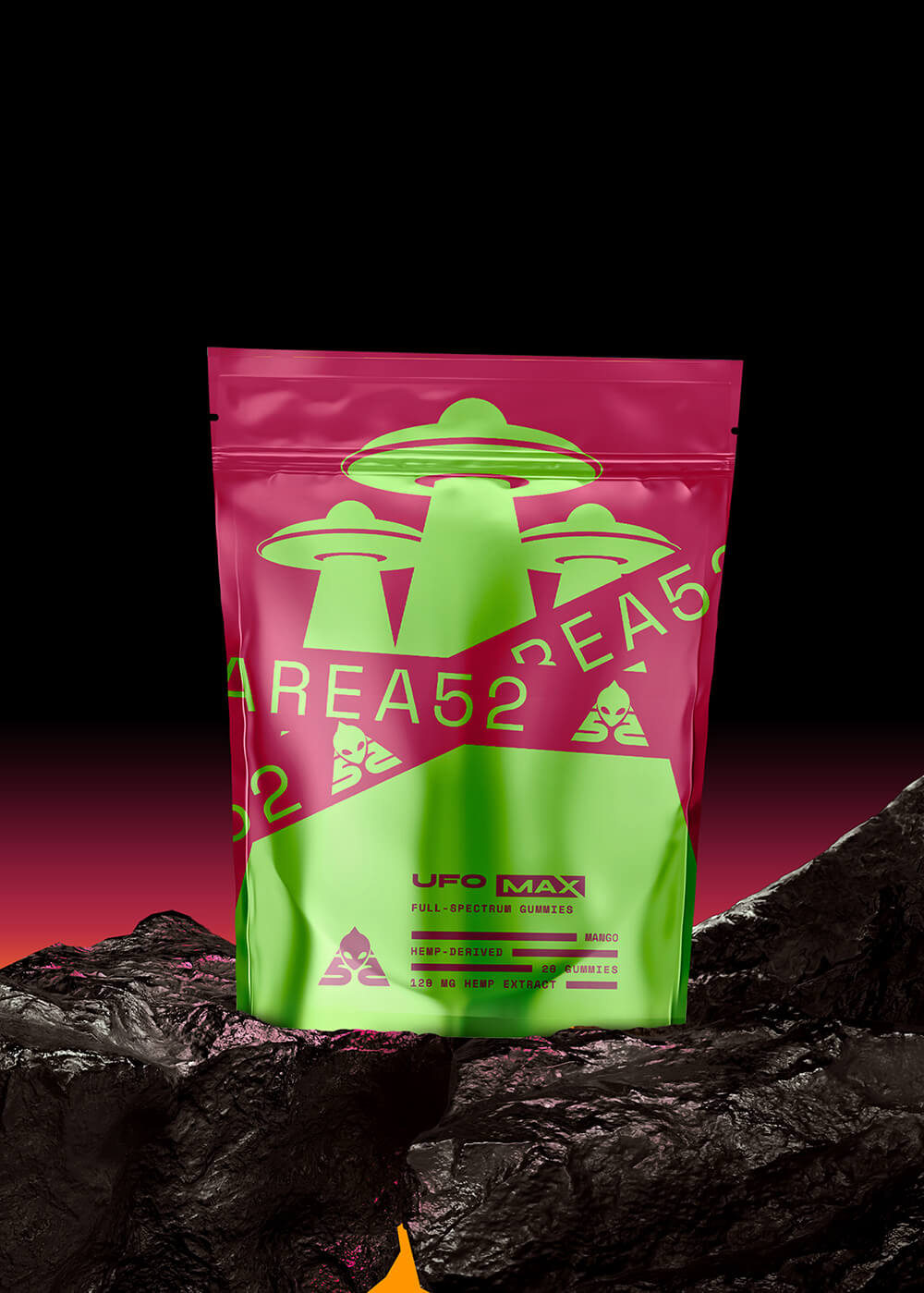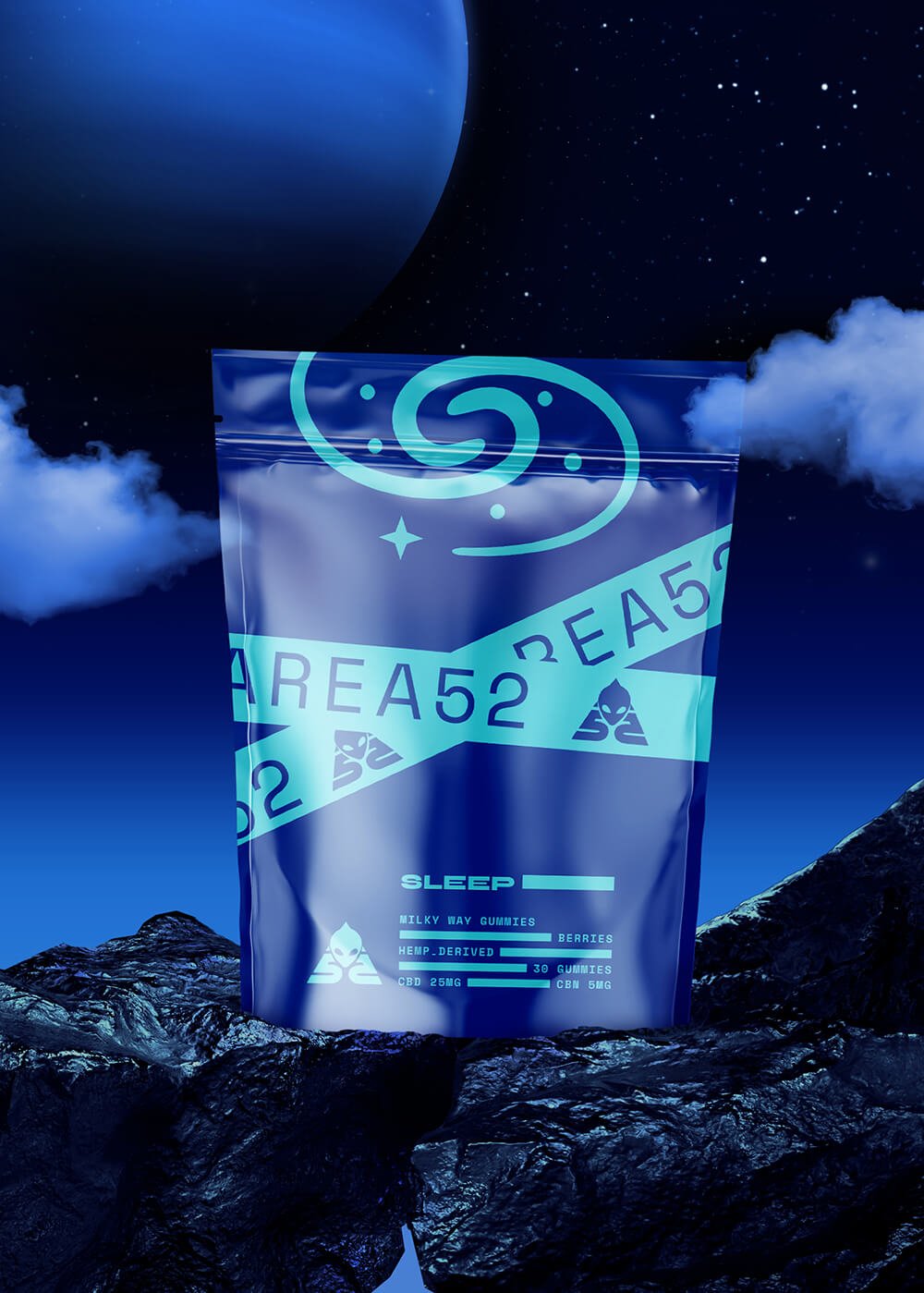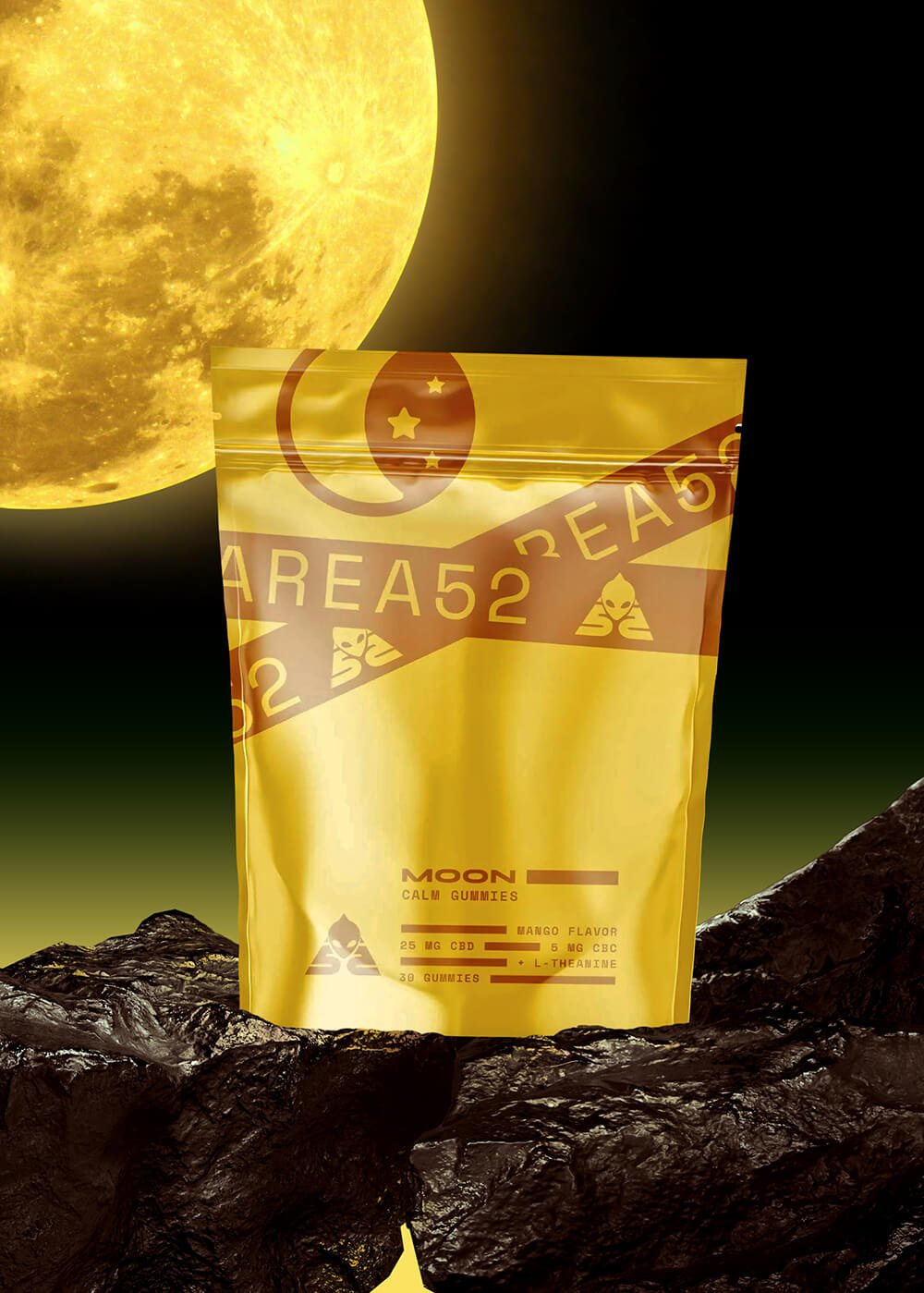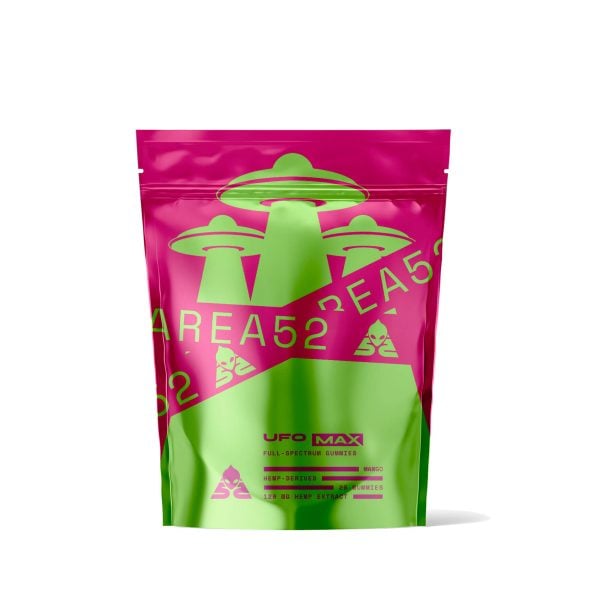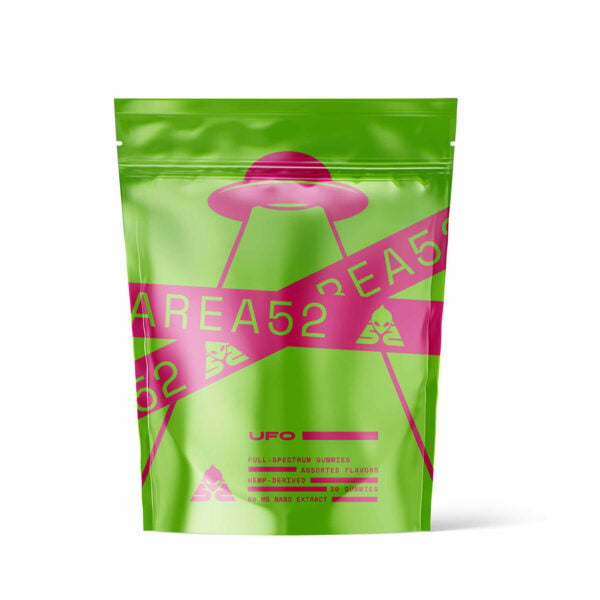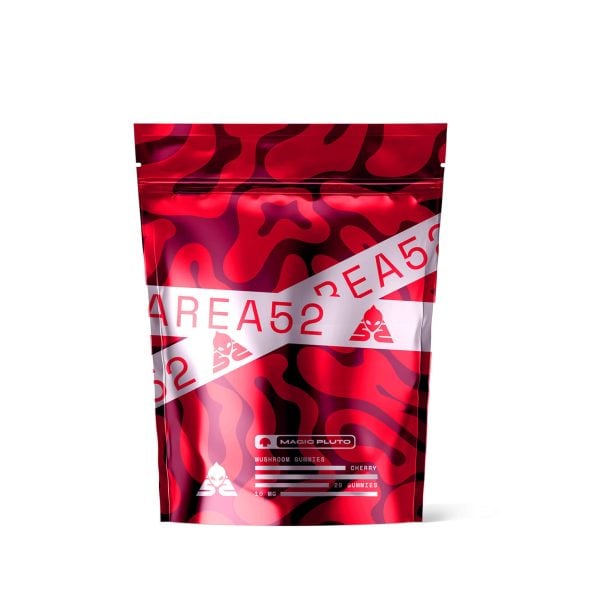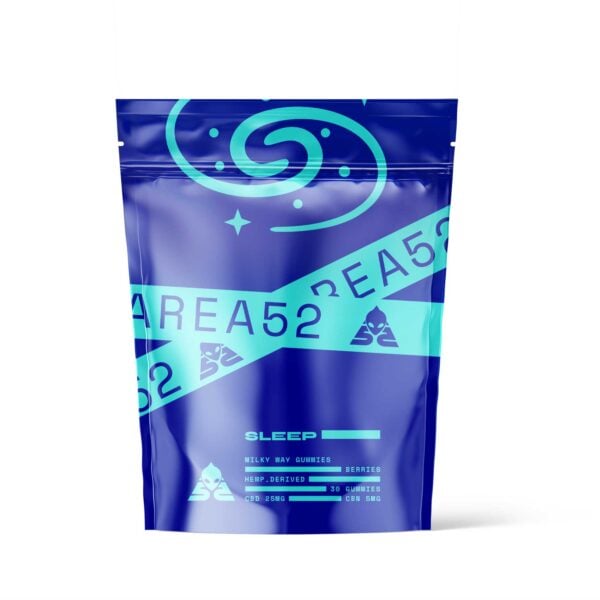How Long Does a Weed High Last?
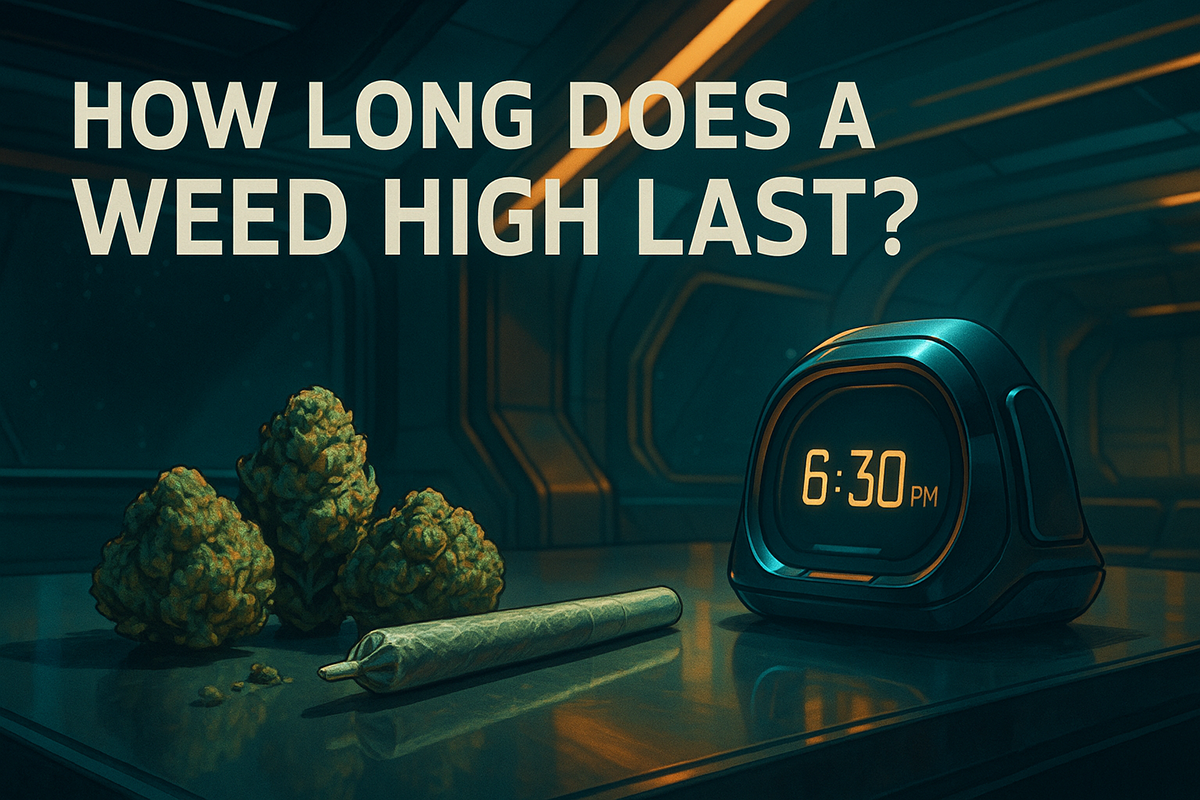
One of the most commonly asked questions among new weed users is how long the high is expected to last.
Whether you’ve yet to consume cannabis and are about to try it for the first time or it’s the middle of a high, and you want to know when you’ll feel normal again — this guide will provide the answers you need.
How Long Does a Weed High Last?
The answer to this question depends on several factors — your body weight, experience with marijuana, metabolism, and the amount of THC you consume will all affect the duration of your high. Another crucial factor to consider is the method by which we consume it.
For example, if you smoke weed, you can expect it to last up to 3 hours. However, if you eat it as an edible, the effects last closer to 6, or even 8 hours.
Comparing the Duration of Effects of Different Weed Products
| Consumption Method | Typical Duration of the High |
| Smoking cannabis (including joints, blunts, pipes, and bongs) | 1 to 3 hours |
| Dabbing | 1 to 4 hours |
| Vaping cannabis (disposable vapes and rechargeable vapes) | 1 to 2 hours |
| Weed Tinctures | 4 to 8 hours |
| Weed Edibles | 2 to 10 hours |
As you can see, the expected duration of the high varies wildly between consumption methods. Vaping typically lasts the shortest amount of time and cannabis edibles provide the longest high at up to five times the duration of vaping.
Understanding these timelines can help you better plan your experience and ensure you aren’t still feeling the effects long after you plan to be sober.
How Long Does It Take for Weed to Kick In?
This question is impossible to answer without knowing some specifics about you and the marijuana you consume.
The onset of effects varies between cannabis users based on body weight, experience, metabolism, dosage, and other factors. The most significant factor, however, is the method by which you have consumed the weed.
Comparing the Onset Time For Different Weed Products
| Consumption Method | Typical Onset of Effects |
| Smoking marijuana (including joints, blunts, pipes, and bongs) | 2 to 10 minutes |
| Dabbing | Usually less than 1 minute |
| Vaping Marijuana (disposable vapes and rechargeable vapes) | 2 to 15 minutes |
| Weed Tinctures | 10 minutes to 1 hour |
| Weed Edibles | 30 minutes to 3 hours |
For those new to cannabis use and for experienced or regular users who are trying a new consumption method, it’s crucial to understand and respect the timelines above. There are countless horror stories about people trying marijuana, not feeling anything, and taking more. This almost always leads to taking too much cannabis, which yields a bad experience such as more intense psychoactive effects, uncomfortable side effects, greening out, or cannabis overdose.
Remember, not all cannabis products are the same, and cannabis affects people differently. If you’re unsure how marijuana will affect you, wait at least the maximum amount of time as indicated in the table above. It’s an even better idea to wait a full day before increasing the dose.
What Factors Affect How Long a Weed High Lasts?
The tables above provide general timelines that will apply to most people, but there are several factors that can shorten or extend the onset and effects timelines. The most significant factors — other than the consumption method — are discussed below.
1. Dosage & THC Concentration
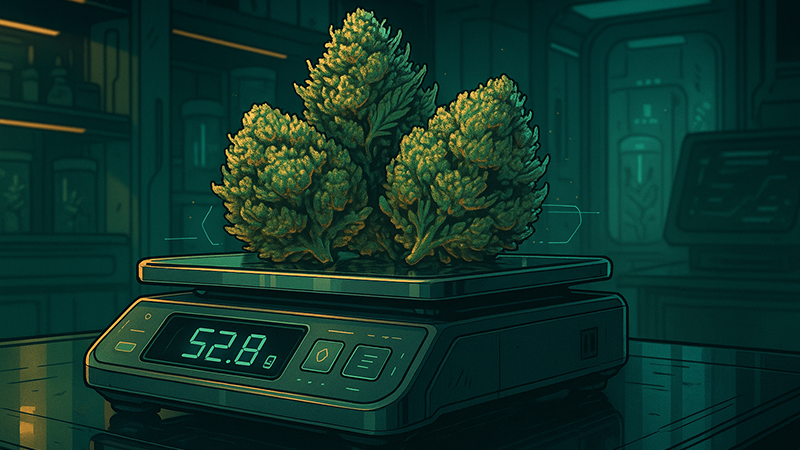
One of the most crucial factors to consider when determining how long your high will last is the dosage you take. Dosage doesn’t necessarily refer to the amount of flower you smoke, the size of the edible you consume, or the number of puffs you take from a vape. Instead, it refers to the amount of THC contained within that dose, with high THC concentrate products like shatter, wax, dab, and hash oil having around 60% to 90% THC.
For example, smoking two different 0.25-gram joints can yield wildly different results if they contain marijuana with a different percentage of THC. Some CBD-heavy strains contain just 1% THC, while the top-shelf THC-heavy strains can contain over 30% THC. Obviously, the strain with 30% THC will deliver a far more intense high, even if you smoke the same volume of flowers.
The higher the concentration of THC — be it in flower, edibles, tinctures, or concentrates for dabbing — the harder the dose will hit. The more THC you consume, the longer the high will last. Your body can only process so much THC in a given timeframe, so a dab that contains 200 mg of THC is likely to last four or more hours, especially for new users. Similarly, an edible with a very high dose of THC can last up to 24 hours as opposed to the standard 10 hours.
Knowing your dose and how much THC is contained within it is a crucial part of having a positive experience.
2. Body Weight
Your body weight can affect how long the high lasts as well, similar to how alcohol affects people of varying body weights differently. The high you experience is really based on the concentration of THC in your body, so heavier marijuana users will naturally have a lower concentration by weight.
A 10-mg dose of THC could be enough for a lighter first-time user, whereas a 15 to 25-mg dose might be more appropriate for someone on the heavy side. This isn’t an exact science, though, and some people are just more sensitive to THC. The best option is to start with a low dose and increase very slowly until you find what works for you.
3. Metabolism
THC is metabolized primarily in the liver, which means your metabolism plays a role in how quickly the psychoactive cannabinoid is removed from your body. The slower your metabolism, the longer the THC will remain in your bloodstream, and the longer your high will last.
In addition to your regular metabolic rate, how recently you’ve eaten can also affect how long your high lasts. Food also needs to use up your body’s resources to be metabolized, so consuming marijuana on a full stomach will often lead to a longer high experience. Alternatively, the high will dissipate more rapidly if you consume the THC on an empty stomach because food won’t be competing for metabolic resources.
4. Experience With Marijuana
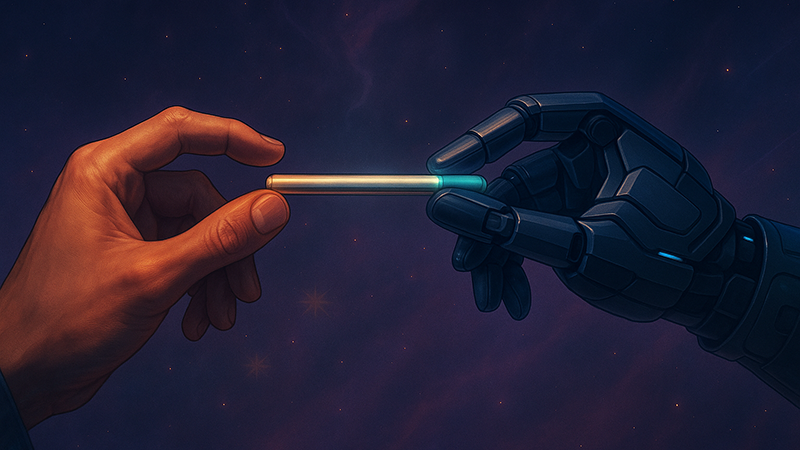
Finally, your experience with marijuana can affect how long your high lasts. Users with a high tolerance will often find that the high dissipates more rapidly, as their bodies are accustomed to processing THC and can do it more efficiently.
Interestingly, most experienced users find that the perceived onset of effects from consuming marijuana kicks in more quickly. This is usually just because the user knows what the high feels like and can sense the mental changes more acutely.
Can You End a Marijuana High Early?
If you have taken too much THC and are not having a good experience, you might be looking to end and stop being high early. There are some things you can do to manage symptoms or reduce the effects more rapidly, but in most cases, you won’t be able to sober up completely — you have to wait it out.
Consuming some terpenes can help in some cases. Terpenes are compounds that give plants their taste and smell, and many people believe there’s a potential cannabis synergy between the cannabinoids and terpenes contained in marijuana, contributing to the overall experience of a strain’s high. Now, terpenes or other substances from other plants can have calming effects that reduce the paranoia or anxiousness you might be feeling from an overwhelming marijuana experience.
Namely, you can try eating some lemon peel or making lemon peel tea, as the terpene limonene could help calm you during a bad experience.
Smelling black pepper to inhale the terpenes pinene and caryophyllene could also help relax and ground you during a high.
There is also some research to suggest that cannabidiol (CBD), another major cannabinoid, could reduce the adverse effects of THC. Taking CBD during an overwhelming THC high calms some users and allows them to relax and enjoy the experience.
Wrapping Up: Why the High Is Different for Everyone
Many new weed users and experienced users trying a new consumption method ask how long the high lasts. The onset of effects and the duration of the high both depend on many factors, the most impactful of which is the dosing method.
Smoking marijuana via a joint, blunt, pipe, or bong usually leads to effects within 2 to 10 minutes, and the high lasts for 1 to 3 hours, on average. Dabbing takes effect almost immediately and can last for about 1 to 4 hours.
Vaping marijuana lasts for 1 to 2 hours, on average, and kicks in within 2 to 15 minutes.
Tinctures take 10 minutes to an hour before effects are noticeable, and the high lasts from 4 to 8 hours.
Edibles take the longest to kick in at 30 minutes to 3 hours, but the high lasts the longest, usually between 2 and 10 hours. This form may be the best choice for chronic pain as it offers longer lasting relief.
Other factors that can affect the high’s duration include body weight, experience with marijuana, the dosage used, and your metabolism.
FAQs on Consuming Weed
We’ll tackle below some commonly asked questions about weed consumption, overconsumption, and natural remedies to overcome it.
1. How Long Does It Take for Weed to Lose Its High?
You’d probably feel as high as a kite anywhere from an hour to 10 hours, depending on factors like the type of cannabis product, method of consumption, THC dosage, frequency and duration of use, body weight, and metabolism, to name a few.
2. Why Do I Still Feel High 3 Days After Smoking?
It takes some time for the body to fully flush out THC from the system, especially since it’s fat soluble and gets stored in our fat cells. But if you have a slower metabolism or are dealing with a weed hangover, the high may feel like it’s lasting longer than usual.
3. What Happens When You Sleep High?
Some people use weed to help them sleep, but if you still feel high the next day, it could affect your day-to-day activities. Regular consumption, especially in higher amounts or doses, can disrupt the normal sleep pattern and negatively impact your sleep quality as well as your overall physical and mental health.
4. How Do I Know If I’m Greening Out?
Greening out happens when you’ve had too much cannabis. The symptoms of greening out include but are not limited to dizziness or lightheadedness, nausea, vomiting, headache, sweating, cold chills, fast heartbeat or palpitations, increased anxiety, confusion, disorientation, paranoia, hallucinations, and delusions.
5. How Do I Stop Greening Out?
If you think you’re greening out, you need to stay calm, find a safe and comfortable place to rest, and wait for the effects to wear off. You can also try placing a few drops of CBD oil under your tongue, since CBD is known to counteract THC’s effects. It’s also important to stay hydrated. If the side effects get too uncomfortable, seek medical help immediately.
References Used
- Sharma, P., Murthy, P., & Bharath, M. S. (2012). Chemistry, metabolism, and toxicology of cannabis: clinical implications. Iranian Journal of Psychiatry, 7(4), 149. [1]
- Niesink, R. J., & van Laar, M. W. (2013). Does cannabidiol protect against adverse psychological effects of THC?. Frontiers in psychiatry, 4, 130. [2]
